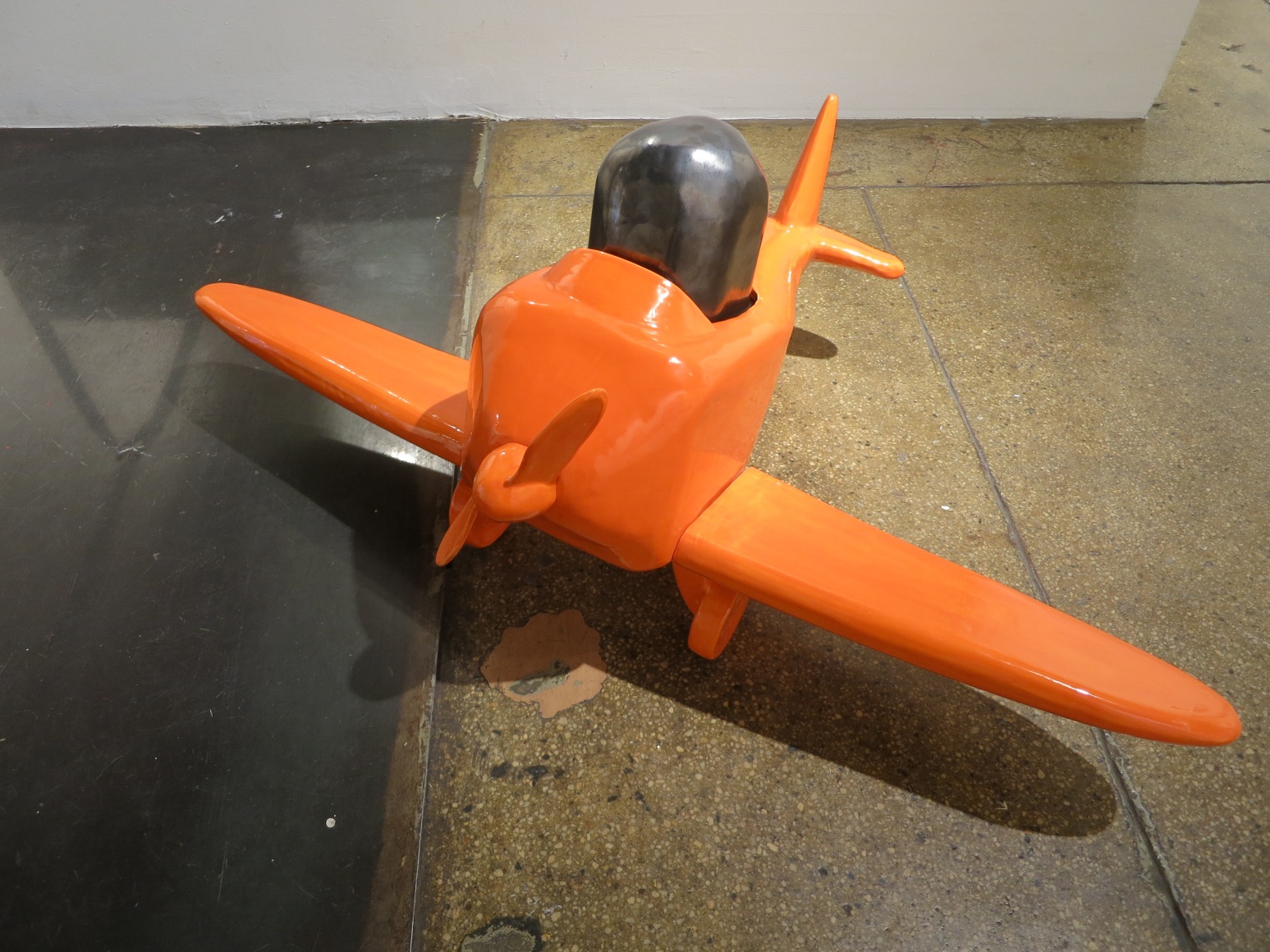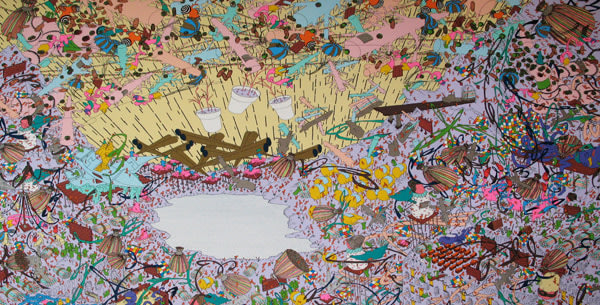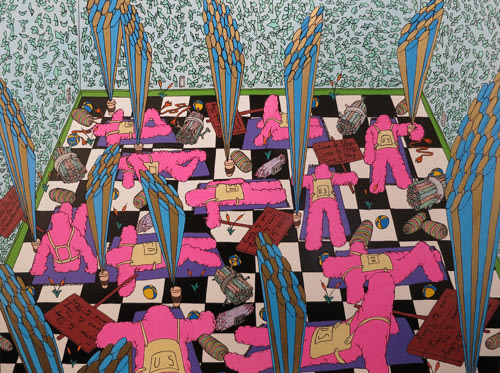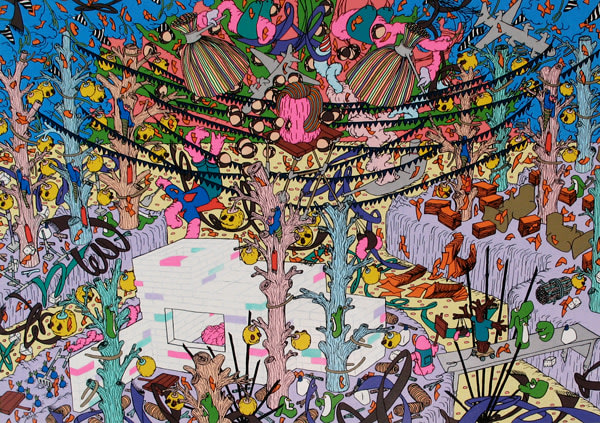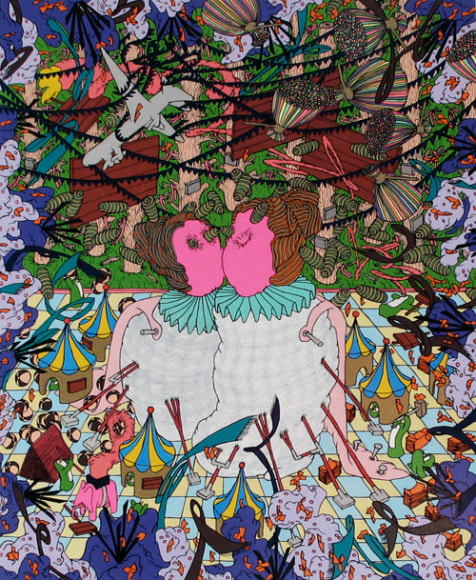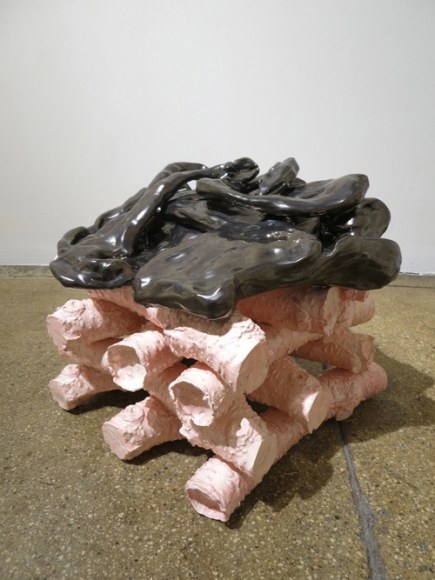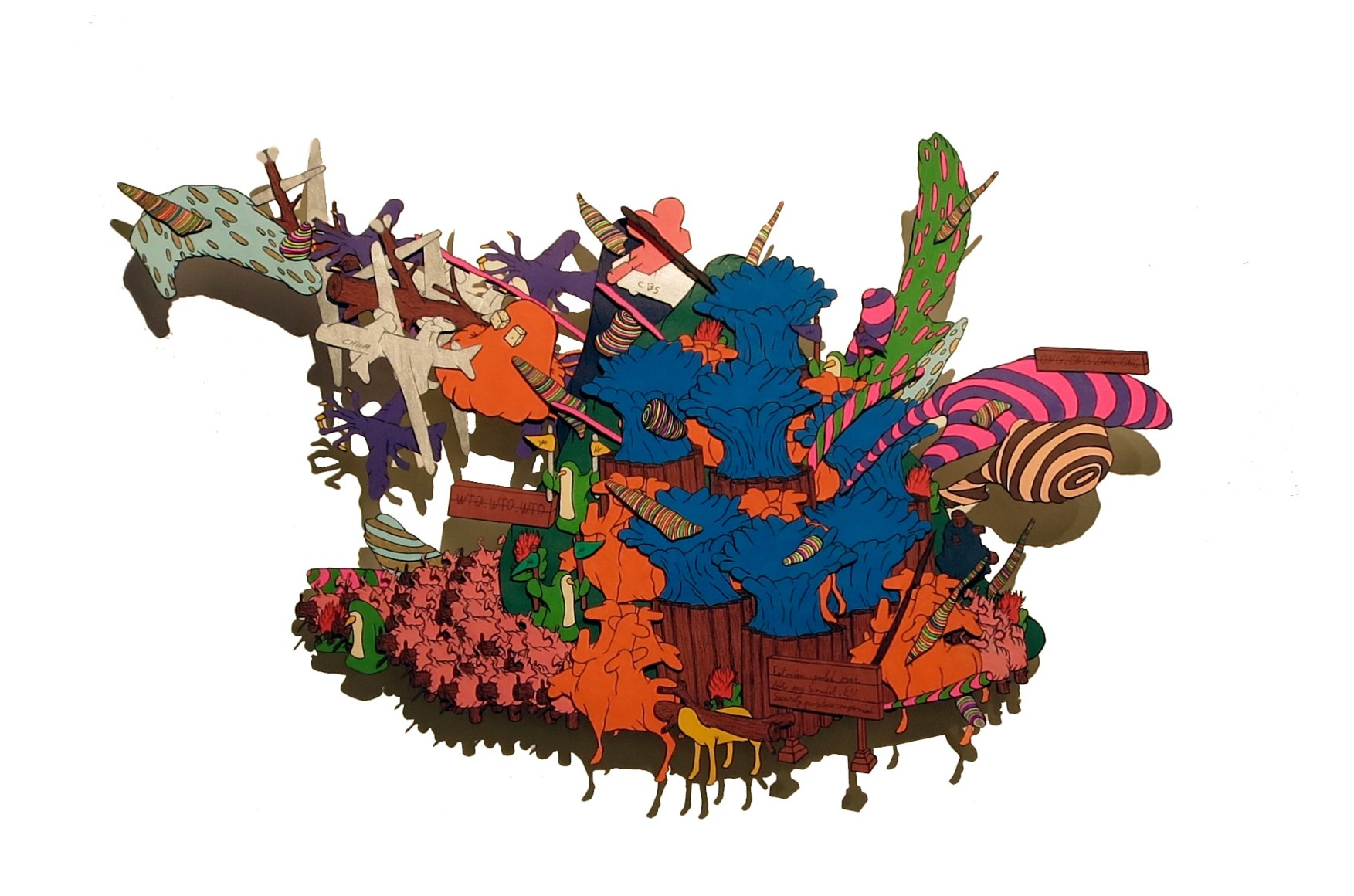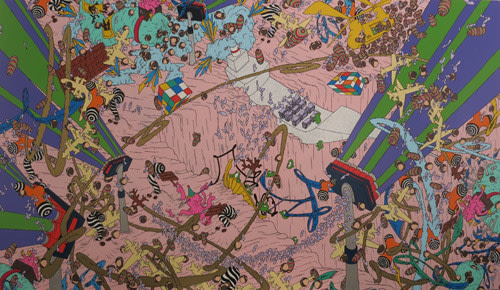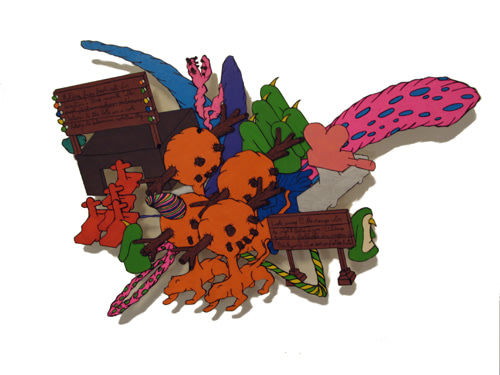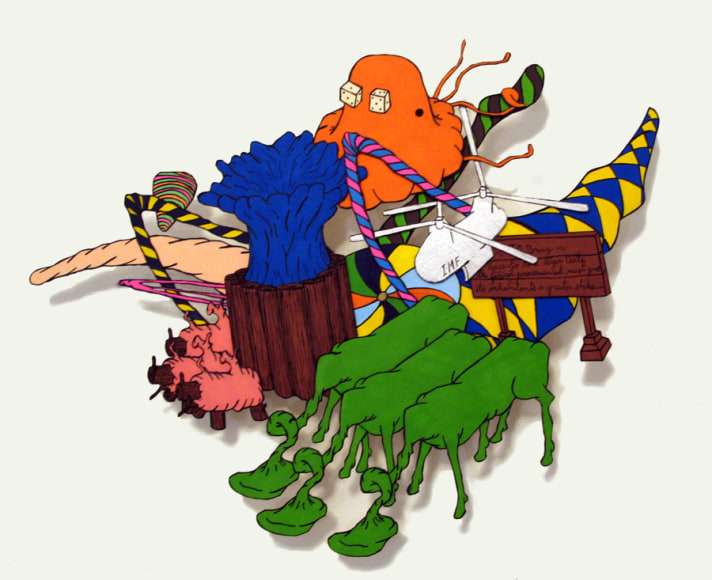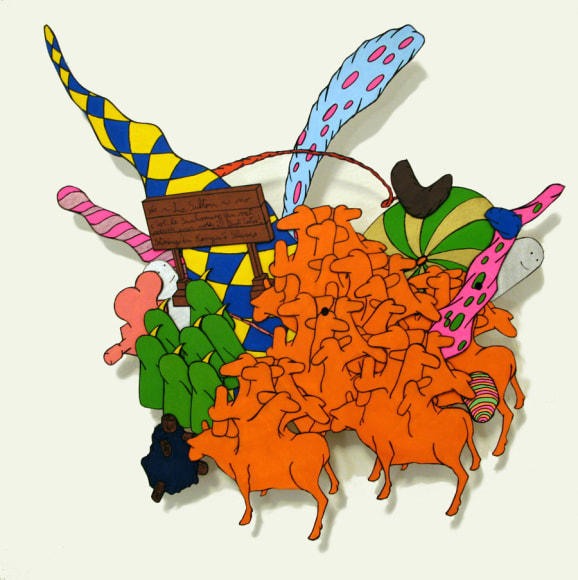Stux Gallery is pleased to announce “Play Ground”, an exhibition of new paintings and sculptures by Nicolas Touron. Born in France and based in New York, Touron creates expansive, detailed and spontaneous canvases that zoom into familiar yet completely alien worlds. Influenced by Pieter Bruegel, The Hudson River School, early works of Jean Dubuffet, Japanese woodblock prints, or the works of Julie Mehretu and Anthony Gormley, Touron toys with the dimension of time and the instant visual accessibility of paintings by inventing his own dynamic method for storytelling.
Touron begins each painting by drawing black outlines of his composition, and filling each shape using flat, opaque paint markers. Found, industrial colours pulsate vibrantly against the controlled edges, and emit energy and anxiety that confound the paintings’ coloring-book innocence. His expressly narrative images tell stories that neither begin nor end. It is difficult to decide whether they depict actions trapped by painting’s two-dimensionality, or intense motion at its breath-stopping moment of stillness, akin to a roller coaster’s momentary pause atop the tallest hill, the point of highest potential energy.
Viewers of Touron’s works are asked to reconcile the intersection of reading and viewing. His explosive colors and dynamic compositions are immediately captivating; however, the sheer complexity captured by these panoramic first impressions requires viewers to examine the storylines in sections. Upon zooming in, the image evokes an irresistible urge to decipher legions of densely populated, stylized objects and “personages”, some less frustrating to label than others. The density of recognisable symbols approaches that of letters in paragraphs of text, but the pleasure of reading is interrupted by the viewer’s dilemma to negotiate one’s symbolic interpretation with a conspicuous, overwhelming sensation of visual satisfaction.In “Boat on the Hudson”, eyeless green penguins, rainbow colored rods, helicopters, unsolved Rubix cubes and strobe lights emitting solid rods of green and blue all sink behind a pink precipice under the force of a Hokusai tsunami, but the direction of gravity is not explicit. Eleven bottomless stacks of purple paper are neatly arranged on a white boat (making it appear like a telephone handset), and release a murmuration of soaring pages; simultaneously, the boat provides an odd oasis of negative space that becomes a counterpoint to the adjacent gaping canyon and surrounding chaos.
Many characters reappear from image to image – bright pink wrinkled characters performing acrobatic stunts in “House” are sunbathing atop black and white grids in “People”, dancing ribbons with words also appear frequently – but it is futile to interpret their footprints. Collapsing limbs stacked upon ceramic wooden logs in the playfully titled sculpture “Deer in the Woods” further his open-ended storytelling. The grim energy of the legs loosely recalls works by Belgian artist Berlinde de Bruyckere, and the grid-like wooden pile amplifies the zoomorphic, pyrogenic chaos. Touron has developed a practically mathematical formula to generate scenes with an endless supply of moments that combine resolution and uncertainty, clarity and spontaneity. Flashes of political themes, historical references and fairytale motifs can be detected intermittently as they contribute to the unique ephemeralness of Touron’s imagined universe.

